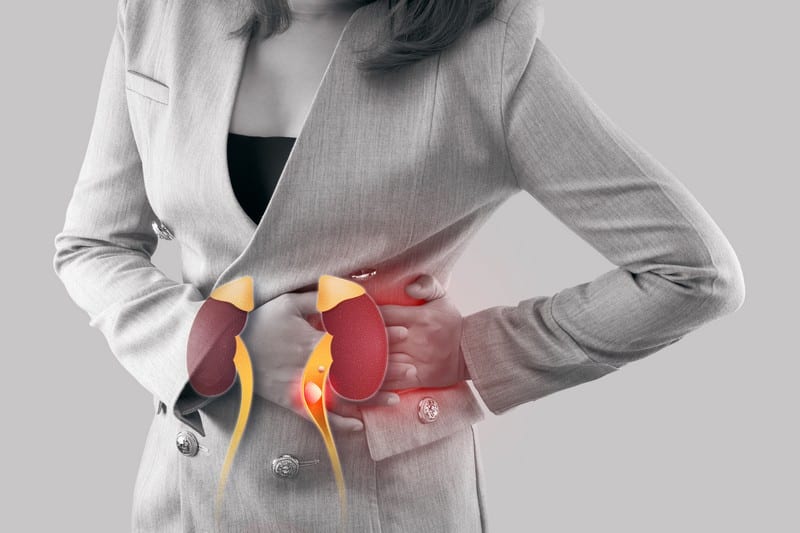Kidney Stones

Kidney stones can develop if there is a build-up of dissolved materials inside your kidneys. Medical history, dietary factors, and low fluid intake can contribute to its occurrence. Often, these stones are small and go unnoticed in your urinary tract. However, their accumulation and growth can cause pain and lead to conditions like urinary incontinence. Moreover, without any medical treatment, it may lead to organ infections and damage.
In many cases, kidney stones don’t always produce symptoms. However, if they do appear, they can include groin and abdominal pain, the presence of blood in your urine, nausea and vomiting, UTIs, and chills and fever. In case of a kidney infection, you may experience fatigue and weakness, diarrhea, and foul-smelling and cloudy urine. Complications, such as chronic kidney disorders, may happen without the right treatment. Therefore, it’s crucial to get medical attention immediately.
High sodium and protein diets and dehydration are the most common causes of kidney stones. However, it also has other risk factors, such as having a personal or family history of the condition, old age, sexual intercourse, diabetes, obesity, elevated blood pressure, pregnancy, and sedentary lifestyles. It’s also possible for medications like allopurinol and topiramate to cause it.










